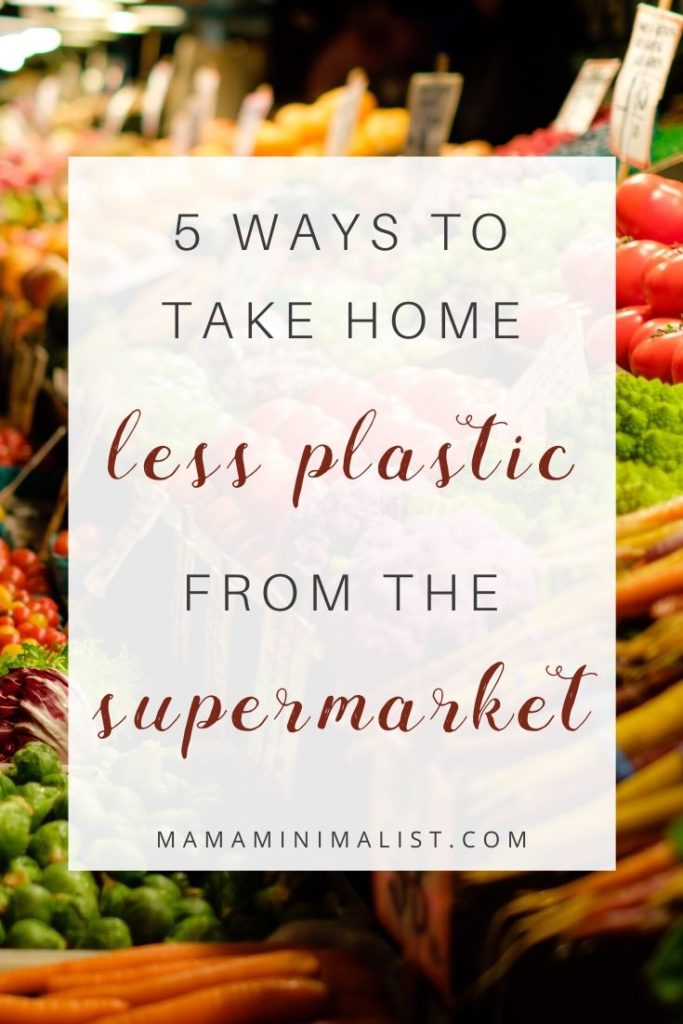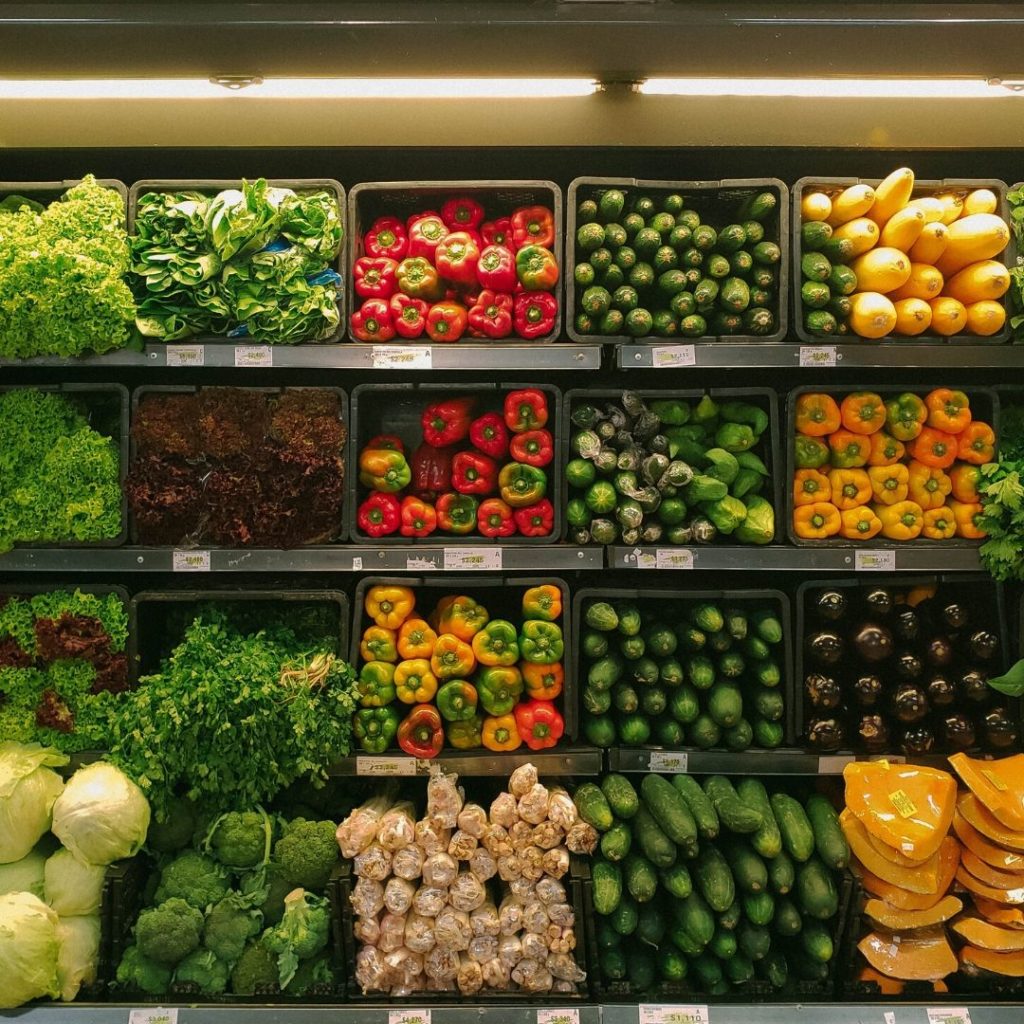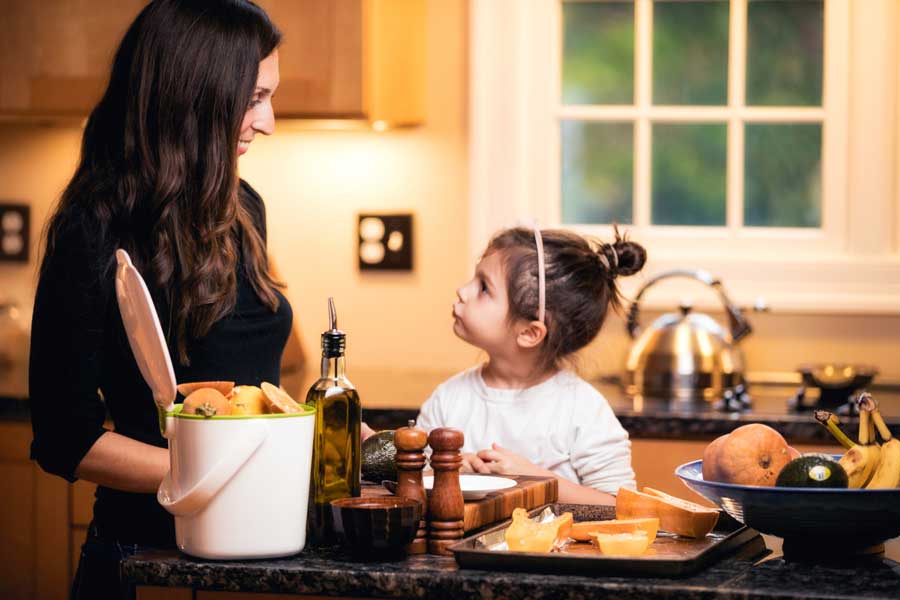Less Plastic Please! 5 Zero Waste Grocery Shopping Ideas
Zero Waste Grocery Shopping Tips
Zero waste grocery shopping is easier than you think.
Take home less plastic by grocery shopping the zero waste way. These 5 strategies are painless + can be implemented by absolutely anyone on his or her next shopping trip.
1. Zero waste grocery shopping means shopping at places other than the grocery store.
When it comes to purchasing food, rethink the “One-Stop Shop” mentality.
– Head to the bakery for fresh bread (bring a pillowcase for storage).
– Visit the fish market or butcher for your protein (bring a flat, lidded glass container for easy transport).
– Buy your produce locally from farmers’ markets, or inquire whether your local farm offers a crop share program.
– Don’t be afraid of small ethnic markets, either: Mom + Pop shops are often quite willing to allow you to bring in your own containers. My local Middle Eastern store, for example, encourages me to load up on olives, spices + even cheese in my own jars.
2: Bring containers from home.
Think beyond the tote bags Whenever possible, bring packaging you already have for use in the grocery store.
– For fruits + vegetables: Mesh produce bags or pillowcases
– Bulk bin items: Glass jars or homemade bags
– Meat + fish: Flat, lidded glass containers
– Bread: Repurposed pillowcases
Bea Johnson suggests creating a zero-waste shopping kit. Create your own shopping kit with the items listed above + store all its elements in a single tote.
It’ll take a few times to get it right but, after a little practice, shopping with your zero-waste shopping kit will feel like second nature.
3. Shop the outer aisles.
Avoid the interior aisles like the plague, for that’s where the over-packaged, over-processed items lie.
Author Michael Pollan spearheaded this idea as a way to eat healthier: if you avoid the items in the middle of the store you’ll eat less processed, over salted junk.
Shopping the outer aisles means you’ll take home less plastic, too.
4: Be a discerning zero waste grocery shopper.
First, understand recycling facts:
– Aluminum can be recycled almost indefinitely.
– Glass can be recycled over + over, too.
– From a recycling standpoint, plastic is the worst packaging material because it can only be recycled an average of 8 times before it heads to the landfill. Avoid plastic at every opportunity.
Next, shop with a critical eye:
One benefit of grocery stores is there are many options when purchasing. When presented with a choice between an item in aluminum or the same item packaged in plastic, for example, always choose aluminum.
Similarly, buy items in large quantities (provided you’ll actually consume all of it) so as to reduce the packaging’s overall surface area.
5: When in doubt, buy less.
The “sales”. The samples on toothpicks. The BOGO deals.
Don’t be fooled: Supermarkets are just like any store. Managers want to sell more product + therefore make more money.
Plan your meals for the week, go with a list + when in doubt, simply don’t buy.



